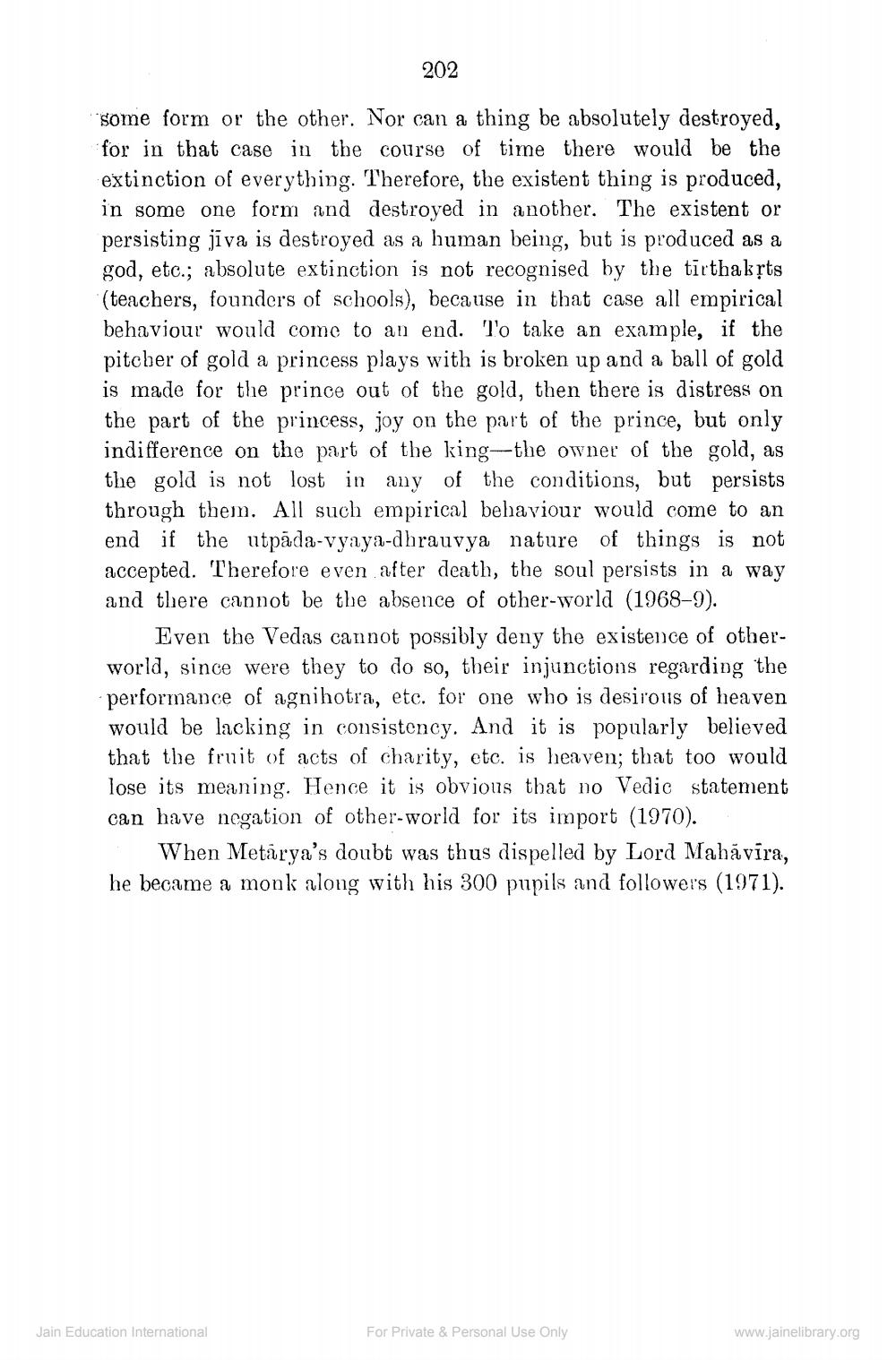________________
202
some form or the other. Nor can a thing be absolutely destroyed, for in that case in the course of time there would be the extinction of everything. Therefore, the existent thing is produced, in some one form and destroyed in another. The existent or persisting jīva is destroyed as a human being, but is produced as a god, etc.; absolute extinction is not recognised by the tīrthakşts (teachers, founders of schools), because in that case all empirical behaviour would come to an end. To take an example, if the pitcher of gold a princess plays with is broken up and a ball of gold is made for the prince out of the gold, then there is distress on the part of the princess, joy on the part of the prince, but only indifference on the part of the king--the owner of the gold, as the gold is not lost in any of the conditions, but persists through them. All such empirical behaviour would come to an end if the utpāda-vyaya-dhrauvya nature of things is not accepted. Therefore even after death, the soul persists in a way and there cannot be the absence of other-world (1968-9).
Even the Vedas cannot possibly deny the existence of otherworld, since were they to do so, their injunctions regarding the performance of agnihotra, etc. for one who is desirous of heaven would be lacking in consistency. And it is popularly believed that the fruit of acts of charity, etc. is heaven; that too would lose its meaning. Hence it is obvious that no Vedic statement can have negation of other-world for its import (1970).
When Metarya's doubt was thus dispelled by Lord Mahāvīra, he became a monk along with his 300 pupils and followers (1971).
Jain Education International
For Private & Personal Use Only
www.jainelibrary.org




